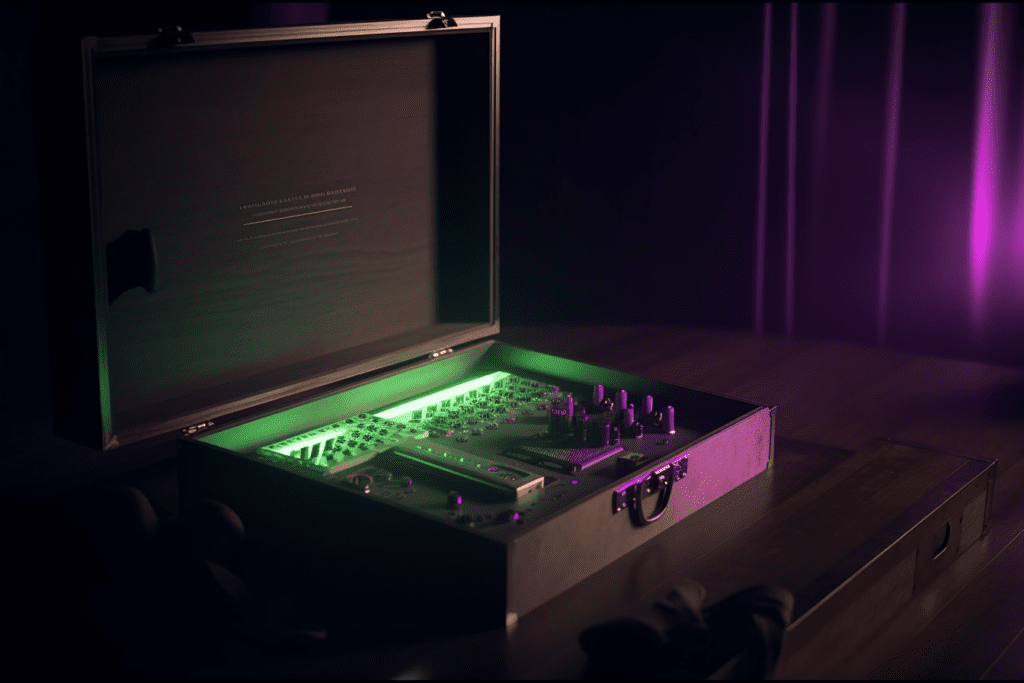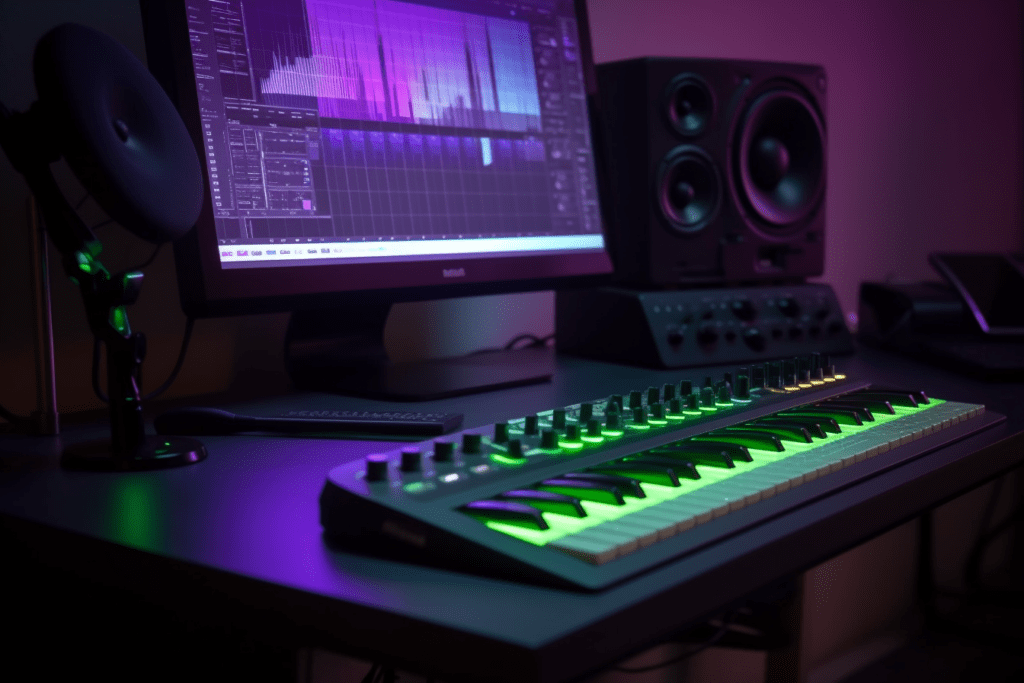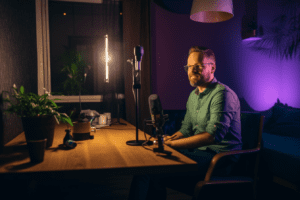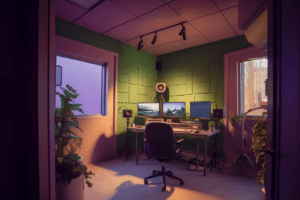In the world of podcasting, interviews play a crucial role in capturing the attention of your audience and creating a memorable listening experience. Mastering the art of conducting engaging and insightful podcast conversations is essential for success.
In this comprehensive blog, we will discuss the key aspects of preparing for and executing podcast interviews, delving into important topics such as building rapport, asking engaging questions, and creating a conversational atmosphere.
Prior Preparation for the Interview
a. Thorough Research
One of the most important steps in preparing for a podcast interview is conducting thorough research on your guest. This involves diving deep into their background, understanding their expertise, and familiarizing yourself with their work. Investigate their accomplishments, any controversies they may have been involved in, and the opinions they have shared in the past. Thorough research not only enables you to ask insightful questions but also demonstrates respect for your guest and their time.
b. Develop a List of Open-Ended Questions
Asking open-ended questions is a key element of engaging podcast conversations. Avoid questions that can be answered with a simple yes or no. Instead, craft questions that encourage your guests to share their thoughts, opinions, and experiences. For example, instead of asking, “Do you enjoy working in your field?” consider asking, “What aspects of working in your field do you find most fulfilling?”
c. Determine the Structure
Decide on the interview format that best suits your podcast and your guest’s expertise. Some podcasters prefer a conversational style, while others opt for a more structured, in-depth approach. Consider your target audience, your guest’s communication style, and the objectives of your podcast when determining the interview structure.

Building Rapport with Your Guest
a. The Pre-Interview Conversation
Connecting with your guest before the interview can help establish trust and make them more comfortable during the conversation. Reach out to your guest through email, phone, or video call to introduce yourself, provide an overview of your podcast, and discuss the interview format. This pre-interview conversation sets the stage for a more relaxed and authentic interview experience.
b. Using Active Listening
Active listening is a critical skill for podcast interviewers. Show genuine interest in your guest’s responses by maintaining eye contact (or focused attention in audio-only formats), nodding, and occasionally summarizing their points to ensure understanding. Active listening helps your guest feel heard and valued, encouraging them to open up and share more of their thoughts and experiences.
c. Being Adaptable
Adjust your interviewing style to match your guest’s personality and energy. Some guests may prefer a more casual, conversational approach, while others might be more comfortable with a formal, structured interview. Be flexible and adapt your style to create an environment in which your guest feels at ease.
Asking Engaging Questions
a. Probing Deeper
Learning how to ask follow-up questions can encourage your guests to share more in-depth insights. Listen carefully to their responses, and use their answers as a springboard for additional questions. For example, if your guest shares an interesting anecdote, ask them to expand on it or explain how it shaped their perspective on a particular issue.
b. Embracing Silence
Allow for moments of silence during the interview to give your guest time to think and formulate their response. While it might be tempting to fill the silence with your own comments or questions, giving your guests the space to reflect can lead to more thoughtful and insightful answers.
c. Encouraging Storytelling
Prompt your guest to share personal experiences and anecdotes related to the topic. Stories not only make the conversation more engaging but also help humanize your guest and create an emotional connection with the listener. A more human approach is one of the best methods when considering how to conduct a podcast interview.

Creating a Conversational Atmosphere
a. Balancing the Dynamic:
To create a conversational atmosphere during your podcast interview, it’s important to strike a balance between guiding the conversation and allowing your guest to lead. Be prepared with your questions and topics, but also be flexible and ready to adapt when your guest takes the conversation in a new direction. By giving your guest the space to share their thoughts and experiences, you can create a more engaging and natural dialogue.
b. The Power of Empathy:
Empathy plays a crucial role in connecting with your guests and creating a comfortable atmosphere. When interviewing your guest, actively listen to their responses and acknowledge their feelings and experiences. Demonstrate understanding and compassion for their perspective. This genuine connection will not only make your guest feel more at ease, but it will also foster a deeper and more meaningful conversation.
c. Humanizing the Conversation:
To make the interview more relatable, don’t shy away from discussing personal experiences and insights. Encourage your guest to share anecdotes and stories that illustrate their points. This can help humanize both the guest and the host, making the conversation feel more authentic and engaging for the listener. By weaving in personal elements, you create a more dynamic and memorable podcast interview that resonates with your audience.
Important Technical Considerations
a. Sound Quality:
Investing in good-quality audio equipment is essential for a professional podcast interview. High-quality microphones, headphones, and audio interfaces can significantly improve the sound quality and create a better listening experience for your audience. Additionally, ensure you have a quiet recording environment, free from background noise and distractions, to maintain clear audio throughout the interview.
Microphone suggestions: Shure – SM7B
b. Editing Techniques:
Utilize editing tools to refine the interview and enhance the overall listening experience. Editing can help you remove awkward pauses, long silences, or stumbles in speech, making the conversation flow more smoothly. Consider using audio editing software like Adobe Audition, Audacity, or GarageBand to polish your interview, adjust audio levels, and even add intro and outro music to create a more engaging podcast.
c. Interviewing with Digital Recording Platforms:
When conducting remote interviews, choose a suitable platform that ensures seamless audio quality and connection. Options like Zoom, Skype, or specialized podcasting platforms like SquadCast or Cleanfeed, or Riverside can provide stable audio connections and allow for high-quality recordings. Before the interview, test your chosen platform with your guest to ensure that everything is set up correctly and that there are no technical issues that could disrupt the conversation.

Learning from the Pros: Notable Interviewers and Podcasts
Want to learn how to conduct a podcast interview? Why not look to the pros?
a. Terry Gross (NPR’s Fresh Air):
Terry Gross, the host of NPR’s long-running radio show and podcast, Fresh Air, is known for her in-depth and engaging interviewing style. She has a remarkable ability to ask thought-provoking questions that draw out insightful and intimate responses from her guests.
Terry’s ability to create a conversational atmosphere and display genuine interest in her guest’s life experiences and expertise sets her apart. Investigate her interviewing style to learn how to establish rapport with guests and facilitate meaningful conversations. Terry has truly mastered how to conduct a podcast interview.
Listen here: https://www.npr.org/programs/fresh-air/
b. Marc Maron (WTF with Marc Maron):
Marc Maron, the host of the popular podcast WTF with Marc Maron, takes a candid, personal approach to interviews, often discussing his own experiences and connecting with guests on an emotional level. This openness encourages guests to share their stories more openly, creating a unique and intimate listening experience.
Explore Marc’s interviewing style to understand the impact his vulnerability has on the success of his show, and consider how adopting a more personal approach could benefit your own podcast interviews.
Listen here: http://www.wtfpod.com/
c. Ira Glass (This American Life):
Ira Glass, the creator and host of This American Life, has pioneered a storytelling-driven interview format that has influenced the podcasting landscape. By weaving narratives and interviews together, Ira creates compelling stories that captivate listeners and leave them wanting more.
This approach encourages guests to share their experiences in the context of a larger story, making for a more engaging and immersive podcast episode. Understand Ira’s unique format and consider how incorporating storytelling elements can elevate your own podcast interviews and enhance the overall listener experience.
Listen here: https://www.thisamericanlife.org/
In conclusion, conducting engaging and insightful podcast interviews requires a combination of thoughtful preparation, creating a conversational atmosphere, mastering technical aspects, and learning from industry-leading interviewers.
By putting these principles into practice, you can elevate your podcast conversations and create a memorable listening experience for your audience. At Earworm, we offer exceptional audio editing and podcast production services to help you achieve the highest quality interviews possible. If you’re interested in learning more about how to conduct a podcast interview, get in touch with us today.





